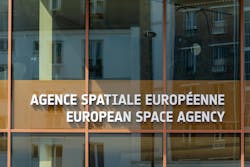ESA announces five companies selected for European Launch Challenge
Summary points:
-
ESA preselected five firms for the European Launcher Challenge after evaluating proposals based on technical and business readiness.
-
Each company could receive up to €169 million for launch service delivery and capacity upgrades.
-
Final contract awards will follow the ESA Council at ministerial level in late 2025.
PARIS - The European Space Agency (ESA) has announced five private companies to advance to the next stage of its European Launcher Challenge, an initiative designed to boost European commercial space launch capabilities and reduce dependence on traditional heavy-lift rockets.
The European Launcher Challenge is part of ESA’s strategy to reshape the continent’s space transportation landscape amid growing global competition and shifting market demands. By inviting private companies to propose independent launch systems, ESA aims to foster a more diverse and commercially viable launch ecosystem. The initiative is also intended to secure Europe’s strategic autonomy in space access by developing new homegrown launch services to serve both institutional and commercial markets.
The program was launched in response to increasing competition from U.S. companies like SpaceX, delays in the development of ESA’s Ariane 6 and Vega-C rockets, and the need to provide smaller, more flexible launch options tailored for new types of missions such as small satellites and cubesats. ESA views the challenge as a key step in developing a sustainable European presence in the growing global launch market.
Commercial space station company Starlab Space opens European subsidiary
Companies selected
Following the first phase of a two-stage tender process, ESA has chosen Germany’s Isar Aerospace and Rocket Factory Augsburg, France’s Maiaspace, Spain’s PLD Space, and the UK-based Orbital Express Launch. These five firms, referred to as "Challengers," were selected based on evaluations of their technical maturity, business sustainability, and alignment with ESA procurement standards.
"The European Launcher Challenge is a key step in fostering a more diverse and competitive European launch services ecosystem," ESA stated.
The Challenge includes two components: the provision of launch services to ESA between 2026 and 2030 (Component A), and a demonstration of upgraded launch capabilities, including at least one test flight (Component B). ESA has earmarked up to €169 million (approximately $198 million) per Challenger to support both components.
ESA says it will now engage in a dialogue phase with the preselected firms and relevant member states to finalize the program’s legal and funding frameworks ahead of the ESA Council at ministerial level (CM25), scheduled for November 2025. The second tender stage, open only to the preselected firms, will commence after CM25, with contract signings to follow.
About the Author
Jamie Whitney
Senior Editor
Jamie Whitney joined the staff of Military & Aerospace Electronics in 2018 and oversees editorial content and produces news and features for Military & Aerospace Electronics, attends industry events, produces Webcasts, and oversees print production of Military & Aerospace Electronics.
